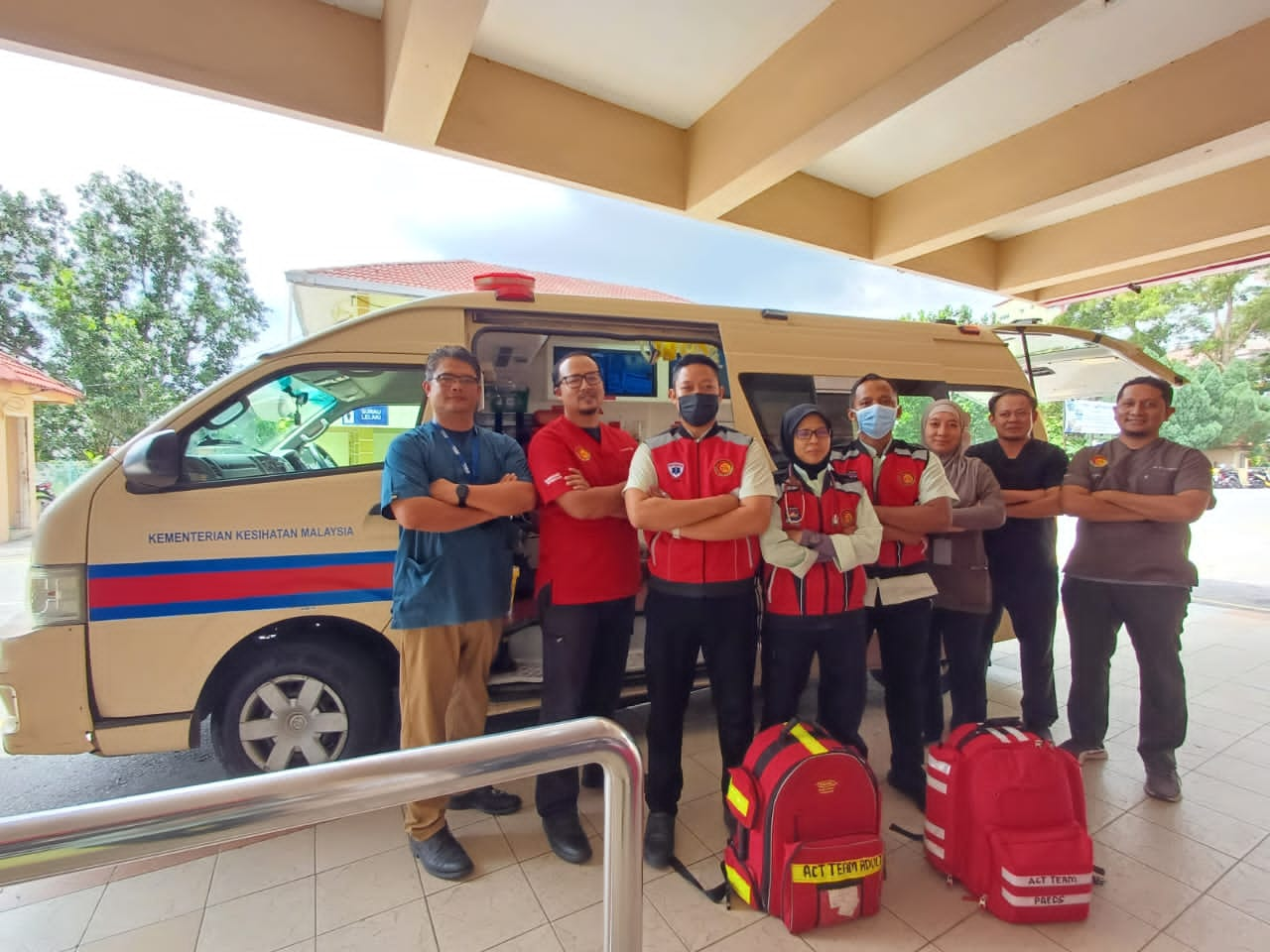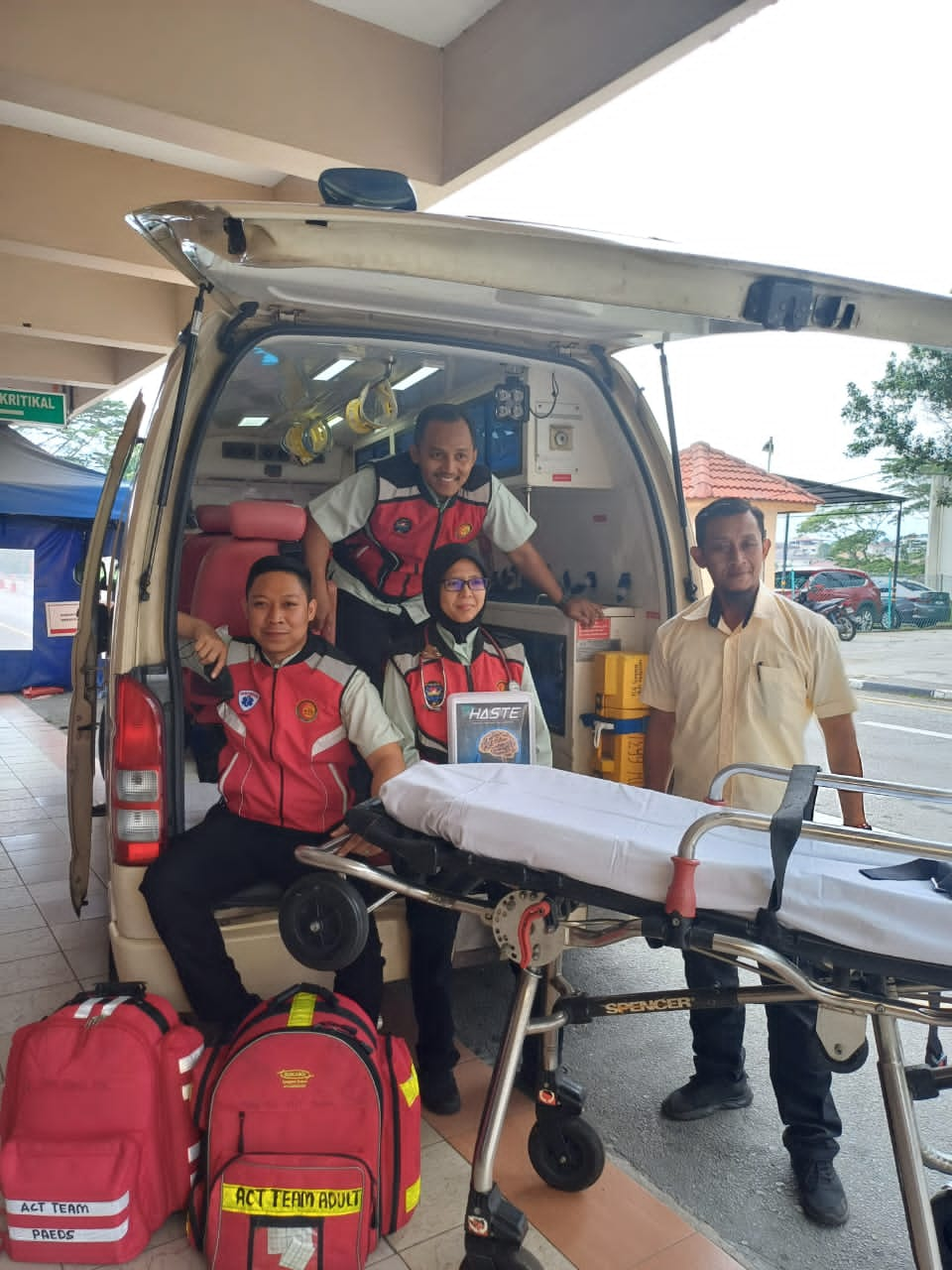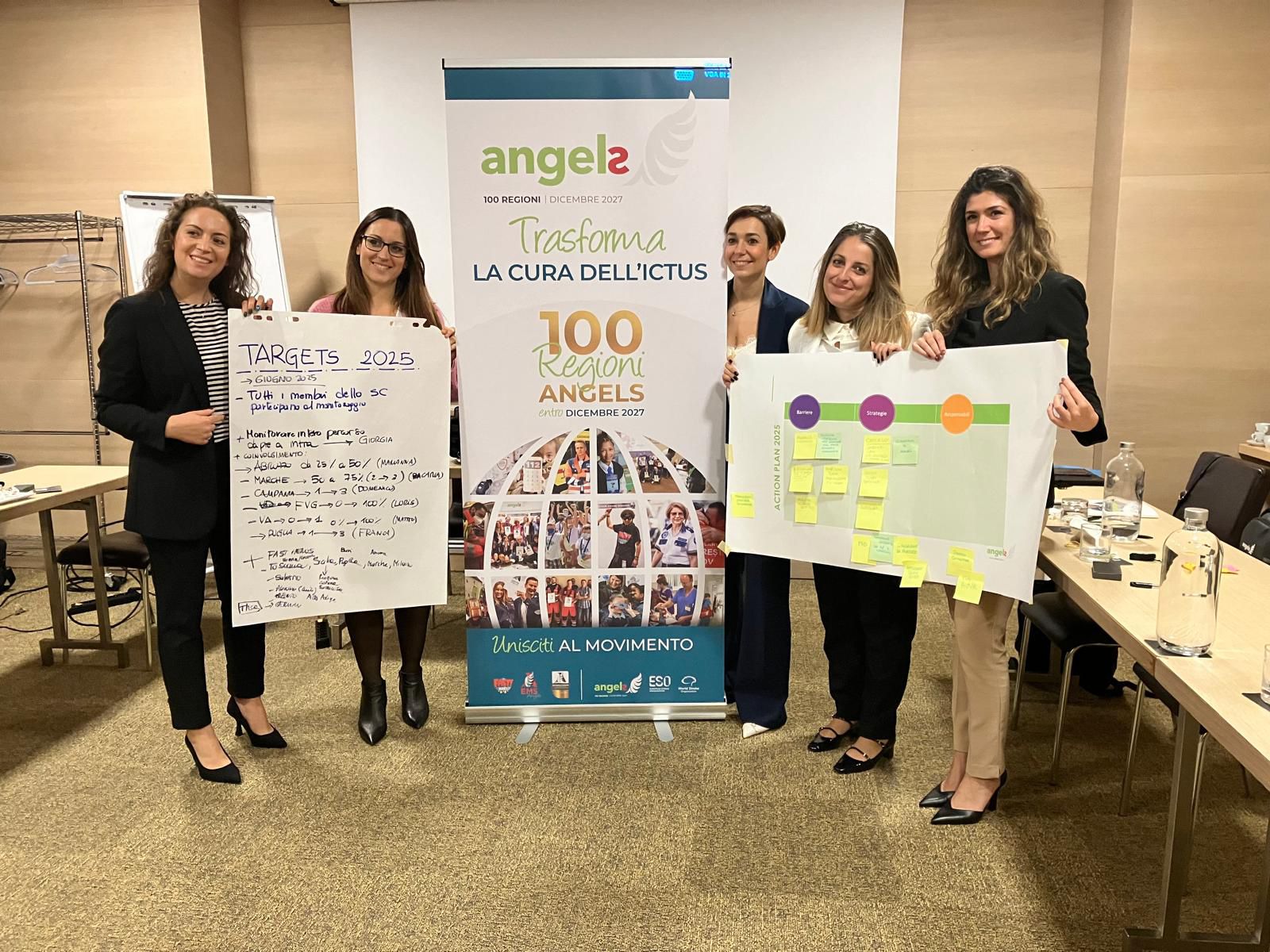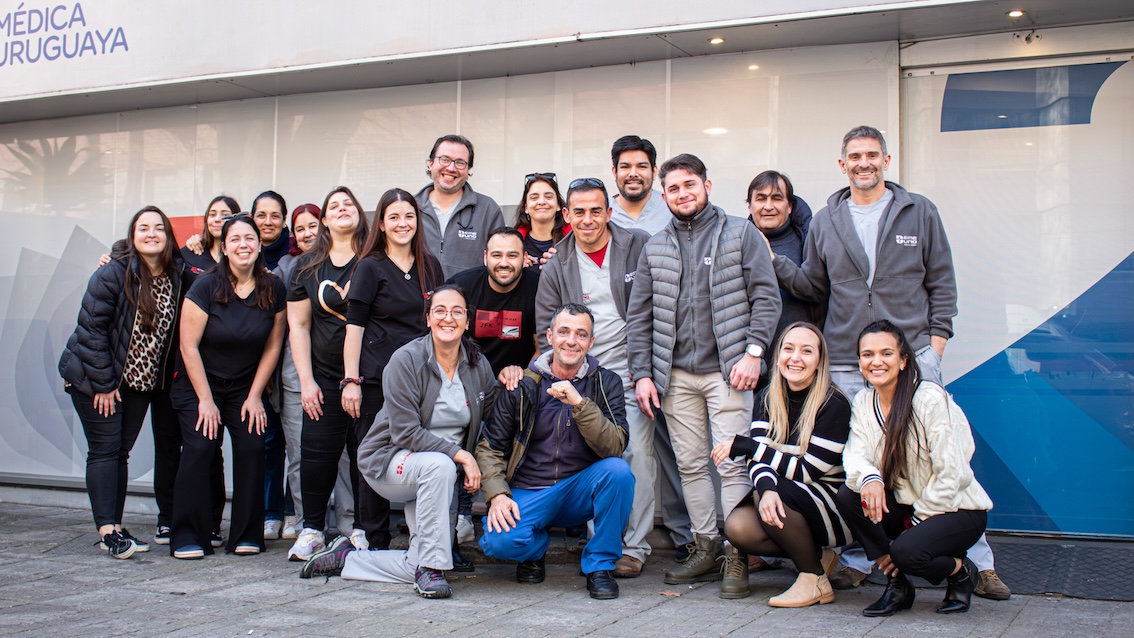
Jusqu'à il y a trois ans, les accident vasculaire cérébral appels au service d’ambulance de l'État de Negeri Sembilan en Malaisie n'étaient pas considérés comme des urgences critiques. Une priorité de niveau 4 leur a été attribuée, et le protocole n’exigeait que que le patient soit conduit à l’hôpital de district le plus proche.
Cependant, en 2020, l’accident vasculaire cérébral a atteint le niveau de priorité 1. À partir de ce moment-là, un accident vasculaire cérébral suspecté placerait le centre d’expédition en alerte élevée. L'ambulance la plus proche et la plus expérimentée serait activée pour assister à la scène, et ils contourneraient l'hôpital le plus proche s'il n'était pas prêt pour l'accident vasculaire cérébral, pour amener le patient directement à l'hôpital Tuanku Ja'afar de la capitale de l'État, Seremban.
Le précurseur de ce changement important est survenu sous 5 mai 2019, l'hôpital de jour Tuanku Jafa'ar a traité pour la première fois un patient accident vasculaire cérébral ischémique avec thrombolyse. Son délai d’attente avant la prise en charge de moins de 60 minutes a été suffisant pour remporter l’hôpital, son premier Prix Angels de la WSO. Au cours des deux années suivantes, il doublera son taux de traitement et divisera par deux son temps de traitement pour devenir l’un des rares hôpitaux de Malaisie à répondre aux critères d’attribution d’un prix diamant.
Pour atteindre cette étape et atteindre un délai d’attente avant la prise en charge de classe mondiale de 25 minutes, l’hôpital a simplifié sa voie pour éliminer toute interaction inutile. Une intervention clé a été de faire de son unité de service d’ambulance une partie de son équipe spécialiste de l’accident vasculaire cérébral, en reconnaissance du fait qu’une voie optimisée de l’accident vasculaire cérébral a commencé au moment où le patient ou son parent a composé le 999. Le résultat de cette collaboration a été le développement duprotocole HASTE, désormais utilisé dans les hôpitaux de tout l'État, et du kit HASTE pour les équipes préhospitalières.
HASTE est l’acronyme de Hyperacute Stroke Smart Track in Emergency, et il s’agit essentiellement d’un modèle pour bien faire les choses importantes. À l'hôpital TuankuJa'afar, cela implique de s'assurer que ses équipes ambulancier sont correctement formées aux soins pré-hospitaliers pour accident vasculaire cérébral , et ont recours au kit HASTE avec des listes de contrôle et des échelles d'évaluation de l'accident vasculaire cérébral pour l'évaluation du patient, ainsi qu'à une supervision à distance par un médecin urgentiste.
La prénotification et l’enregistrement préalable garantissent qu’une équipe spécialiste de l’accident vasculaire cérébral est prête à recevoir le patient à son arrivée. Après un bref arrêt au service des urgences, le patient est dirigé vers le TDM, qui se trouve environ 15 pas au-delà de la zone rouge.
L'hôpital TuankuJafar a l'une des deux seules TDM de l'état, mais les patients accident vasculaire cérébral sautent la file d'attente inévitable. Dans une autre tactique de gain de temps, le patient reste dans le brancard du SMU jusqu’à ce que la décision de traitement soit prise et qu’il soit transféré dans un lit dédié au service des urgences.
L'un des résultats de cette stratégie intégrée est que l'hôpital TuankuJafarkeeps ajoute à son ensemble de prix – chacun étant une plume dans la tête des médecins urgence Dr Emi Noorina Binti Mohd Nor, Dr Syed Hussein Barakbah et Dr Mohamad Azzlee Mustafa qui dirigent le programme d'accident vasculaire cérébral l'aide du médecin de médecine interne aiguë (AIM), Dr Yg.
L'autre est que l'unité de service d'ambulance TuankuJafar attire également une reconnaissance internationale en tant que première équipe SMU en dehors de l'Europe à recevoir un Prix Angels SMU. service d’ambulance

Tout comme les Angels Awards de la WSO, les SMU Awards servent non seulement à reconnaître la performance, mais également à améliorer le niveau de soins en identifiant les domaines où une amélioration est nécessaire. Les performances sont mesurées par rapport aux critères qui incluent le temps sur place, la notification préalable, l’administration à des hôpitaux prêts pour l’accident vasculaire cérébral, et le signalement des médicaments du patient et le dernier temps connu normal.
Un seul point de pourcentage du taux de prénotification a permis à l'équipe de TuankuJafar d'atteindre le statut de diamant au Q1 de 2023. Mais bien qu'ils aient dû être satisfaits d'un deuxième platine pour l'instant, tous les yeux sont sur leur temps médian sur le milieu de 10 minutes, ce qui, selon la coordonnateur des prix Katarzyna Puty Co est le meilleur qu'ils aient vu jusqu'à présent.
La communauté accident vasculaire cérébral reconnaît de plus en plus qu'une relation de travail étroite entre l'hôpital et les SMU sauve des vies, et que le protocole unique de TuankuJafar pour les soins neuro-vasculaires préhospitaliers et hospitaliers est un cas. Une étude américaine de 2020 sur le rôle des SMU dans les systèmes de soins de l’accident vasculaire cérébral a révélé que l’intégration des SMU était essentielle pour améliorer les taux de thrombolyse chez les patients victimes d’un accident vasculaire cérébral ischémique aigu.
Une étude antérieure sur la collaboration hospitalière-SMU en cas d’infarctus aigu du myocarde (IAM) a révélé que la collaboration active était associée à des taux de mortalité des IMA plus faibles. Les mesures recommandées par les auteurs de cette étude s'appliquent également aux collaborations de parcours d'accident vasculaire cérébral telles que celle deTuankuJaafar : communication et coordination fortes, engagement des SMU dans les activités d'amélioration de la qualité et respect des prestataires des SMU en tant que professionnels.
A TuankuJa'afarrespect est exprimé de plusieurs façons. Les équipes ambulanciers reçoivent non seulement des commentaires réguliers sur les résultats des patient, mais elles sont également invitées à fournir des commentaires sur la manière dont le protocole pourrait être amélioré, et sont incluses en tant que présentateurs lors d’ateliers conjoints où elles peuvent partager leurs connaissances avec les médecins et les ambulanciers.
"Il est important de les reconnaître", dit le Dr Mohamad Azzlee Mustafa. "Ils font partie de notre équipe".



